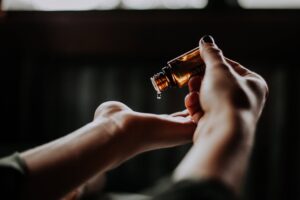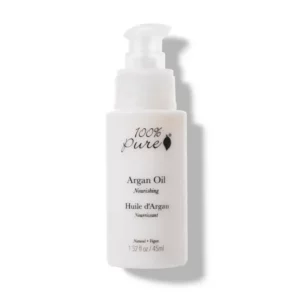Argan Oil’s Pore-Clogging Potential

Argan oil has become a popular ingredient in the beauty world, celebrated for its potential skin and hair benefits. Extracted from the kernels of the argan tree native to Morocco, it’s often marketed as a natural elixir with numerous skincare advantages. However, there’s a persistent debate in the beauty community about whether argan oil is comedogenic, meaning if it can clog pores and lead to acne breakouts. In this blog, we’ll explore the myths and truths surrounding the comedogenicity of argan oil.
The Myth of Comedogenicity
The comedogenicity of oils is often assessed using a scale known as the “Comedogenic Scale.” This scale ranks oils and ingredients on a scale from 0 to 5, with 0 being non-comedogenic (least likely to clog pores) and 5 being highly comedogenic (most likely to clog pores). Argan oil is typically assigned a low score on this scale, usually ranging from 0 to 2. This has led many to believe that argan oil is non-comedogenic, making it a safe choice for people with acne-prone or sensitive skin.
The Truth About Argan Oil
While argan oil does indeed have a relatively low comedogenic rating, it’s essential to understand that the comedogenicity of any oil or skincare product can vary from person to person. Factors such as an individual’s skin type, specific skin concerns, and the overall formulation of the product play a significant role in how an oil like argan oil may impact their skin.
Here are some key points to consider when determining whether argan oil is right for your skincare routine:
1. Skin Type Matters
People with different skin types may have varying reactions to argan oil. Those with dry or normal skin are more likely to benefit from the hydrating and moisturizing properties of argan oil. However, individuals with oily or acne-prone skin may experience different results. It’s crucial to consider your unique skin type when deciding whether to incorporate argan oil into your skincare regimen.
2. Product Formulation
The purity and quality of argan oil can significantly impact its comedogenicity. Pure, cold-pressed argan oil is less likely to clog pores compared to products that contain various additives and preservatives. If you’re concerned about the potential comedogenicity of argan oil, choose a high-quality, pure product with minimal additional ingredients.
3. Patch Testing
A patch test is an essential step before incorporating any new skincare product into your routine. Apply a small amount of argan oil to a discreet area of your skin, such as behind your ear or on your forearm, and observe how your skin reacts over a few days. If you experience any adverse effects, such as redness or breakouts, it may be an indication that argan oil is not suitable for your skin.
4. Usage
The amount of argan oil you use and how often you use it can also influence its comedogenicity. Using a few drops as part of your skincare routine is less likely to clog pores than overusing it. A little goes a long way with argan oil, so use it sparingly.
The Benefits of Argan Oil
It’s important to note that argan oil offers numerous benefits for the skin that can make it a valuable addition to your skincare routine, depending on your skin type and concerns. Here are some of the advantages of using argan oil:
1. Moisturization
Argan oil is rich in essential fatty acids and antioxidants, making it an excellent natural moisturizer. It can help hydrate and nourish the skin, leaving it soft and supple.
2. Anti-Aging
The antioxidants in argan oil, such as vitamin E, can help protect the skin from premature aging. Regular use may reduce the appearance of fine lines and wrinkles.
3. Skin Repair
Argan oil contains various compounds that promote skin repair and regeneration. It can be especially beneficial for people with dry or damaged skin.
4. Non-Comedogenic Makeup Remover
Argan oil can serve as an effective and non-comedogenic makeup remover, helping you eliminate makeup while simultaneously nourishing your skin.
5. UV Protection
While argan oil should not be considered a replacement for sunscreen, it does offer some natural sun protection. It can help shield the skin from UV damage.
6. Reduced Inflammation
Argan oil’s anti-inflammatory properties can soothe skin conditions like eczema and dermatitis, providing relief from itching and redness.
Tips for Using Argan Oil
If you decide to incorporate argan oil into your skincare routine, here are some tips to make the most of its benefits while minimizing the risk of clogged pores:
- Patch Test: As mentioned earlier, always perform a patch test to ensure that your skin does not react negatively to the oil.
- Use Sparingly: A little argan oil goes a long way. A few drops are generally sufficient for your entire face.
- Nighttime Application: Consider applying argan oil at night as part of your evening skincare routine. This allows the oil to work its magic while you sleep, and any potential greasiness may be less noticeable.
- Layering: You can use argan oil in conjunction with other skincare products. Apply it after your serums and before your moisturizer to lock in hydration.
- Non-Comedogenic Products: If you’re worried about clogged pores, choose non-comedogenic products for the rest of your skincare routine to reduce the risk of breakouts.
- Monitor Your Skin: Pay attention to how your skin responds. If you notice any adverse reactions, discontinue use and consult with a dermatologist.

In the debate surrounding the comedogenicity of argan oil, it’s essential to recognize that it can be a beneficial addition to a skincare routine for many individuals. The key lies in understanding your skin type, conducting a patch test, and using the oil appropriately. While argan oil is generally considered non-comedogenic, individual experiences may vary.
The beauty of skincare is that it’s highly personal. What works for one person may not work for another. If you’re considering incorporating argan oil into your regimen, do so thoughtfully and with attention to your skin’s unique needs. Ultimately, the choice to use argan oil should be based on your skin’s response and the benefits you experience. Don’t be afraid to embrace this Moroccan treasure if it aligns with your skincare goals!

